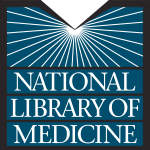- Settore: Library & information science
- Number of terms: 152252
- Number of blossaries: 0
- Company Profile:
The National Library of Medicine (NLM), on the campus of the National Institutes of Health in Bethesda, Maryland, is the world's largest medical library. The Library collects materials and provides information and research services in all areas of biomedicine and health care.
The head of a long bone that is separated from the shaft by the epiphyseal plate until bone growth stops. At that time, the plate disappears and the head and shaft are united.
Industry:Medical
Common bacterium that has been studied intensively by geneticists because of its small genome size, normal lack of pathogenicity, and ease of growth in the laboratory.
Industry:Medical
1) Cytoplasmic vesicles formed when coated vesicles shed their clathrin coat. Endosomes internalize macromolecules bound by receptors on the cell surface.
2) A membrane-bound organelle that carries materials newly ingested by endocytosis. It passes many of the materials to lysosomes for degradation.
Industry:Medical
A deficiency of blood coagulation factor V (known as proaccelerin or accelerator globulin or labile factor) leading to a rare hemorrhagic tendency known as Owren's disease or parahemophilia. It varies greatly in severity. Factor V deficiency is an autosomal recessive trait.
Industry:Medical
Situated or occurring outside a cell or the cells of the body (extracellular digestion, extracellular enzymes. )
Industry:Medical
1) Excessive amount of watery fluid accumulated in the intercellular spaces, most commonly present in subcutaneous tissue.
2) Swelling caused by excess fluid in body tissues.
Industry:Medical
1) Cells that look abnormal under a microscope but are not cancer.
2) Variation in somatotype (as in degree of ectomorphy, endomorphy, or mesomorphy) from one part of a human body to another.
3) Abnormal growth or development (as of organs or cells); broadly: abnormal anatomic structure due to such growth.
Industry:Medical
1) The person for whom something (as a disease) is or is believed to be named.
2) A name (as of a drug or a disease) based on or derived from the name of a person.
Industry:Medical
